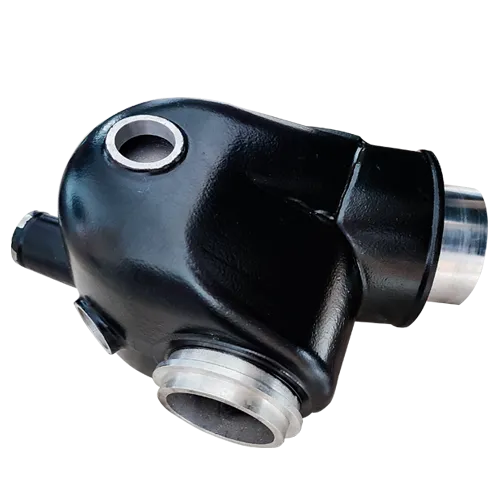Mobile:+86-311-808-126-83
Email:info@ydcastings.com
steel precision casting
The Art and Science of Steel Precision Casting
In the realm of manufacturing, few processes blend artistry and engineering as beautifully as steel precision casting. This technique, which involves pouring molten steel into a carefully designed mold, allows for the production of complex and intricate components with exceptional accuracy and minimal waste. As industries increasingly demand precision and consistency, steel precision casting has emerged as a critical method for producing high-quality parts used in various applications, from automotive to aerospace.
Understanding Precision Casting
At its core, precision casting is a sophisticated form of casting that enhances the traditional methods of metalworking. Unlike sand casting, which is known for its simplicity but often compromises precision, precision casting utilizes advanced techniques to produce parts that require minimal machining. The process begins with creating a wax or polymer pattern that closely resembles the final product. This pattern is coated with a ceramic material that hardens to form a shell. Once the shell is ready, the pattern is melted away, leaving a cavity that exactly matches the desired shape.
This technique is particularly advantageous when working with steel due to its high melting point and excellent mechanical properties. The ability to mold steel into intricate shapes that might be impossible to achieve through traditional machining not only saves time but also reduces costs. The precision achieved through this process often negates the need for extensive finishing work, making it a popular choice among manufacturers.
Benefits of Steel Precision Casting
One of the key advantages of steel precision casting is the exceptional dimensional accuracy it provides. Components produced through this method can achieve tolerances as tight as a few thousandths of an inch. This precision is critical in applications where even minor deviations can lead to operational failures or inefficiencies, such as in aerospace engines or medical devices.
Furthermore, the use of steel enhances the durability and strength of the components. Steel, known for its robustness, lends itself well to environments where mechanical stress, temperature fluctuations, and corrosive substances are a concern. When utilizing precision casting, manufacturers can create parts that not only fit perfectly but also withstand demanding operational conditions.
steel precision casting

Another significant benefit is the ability to produce complex geometries that would otherwise be impossible or prohibitively expensive with alternative manufacturing techniques. Intricate internal passages, varying wall thicknesses, and detailed profiles can all be produced in one step, significantly enhancing design flexibility.
Applications Across Industries
Steel precision casting finds applications across a broad spectrum of industries. In the automotive sector, components such as engine blocks, transmission housings, and critical suspension parts are routinely produced using this method. The reliability and strength of these components ensure that they meet stringent safety and performance standards.
In the aerospace industry, where weight efficiency and reliability are paramount, precision casting plays an integral role. Components for aircraft engines, landing gear, and various structural parts benefit from the lightweight attributes of precision-cast steel, coupled with its unparalleled strength.
Moreover, the energy sector makes extensive use of steel precision casting, particularly in the production of turbine blades and valve components. These parts must endure extreme stress and temperature fluctuations, and the precision afforded by this casting method ensures their longevity and reliability.
Conclusion
Steel precision casting is a remarkable synthesis of technology, design, and manufacturing processes that continues to evolve. As industries push for heightened efficiency and sustainability, the allure of this technique becomes even more evident. By allowing manufacturers to create intricate, durable, and precise components, steel precision casting not only meets modern demands but also opens doors for future innovations in design and functionality. Whether in automotive, aerospace, or energy sectors, the impact of precision casting on the manufacturing landscape is profound and enduring. As we move forward, the importance of mastering this technique will undoubtedly shape the future of engineering and production.
-
Why Should You Invest in Superior Pump Castings for Your Equipment?NewsJun.09,2025
-
Unlock Performance Potential with Stainless Impellers and Aluminum End CapsNewsJun.09,2025
-
Revolutionize Your Machinery with Superior Cast Iron and Aluminum ComponentsNewsJun.09,2025
-
Revolutionize Fluid Dynamics with Premium Pump ComponentsNewsJun.09,2025
-
Optimizing Industrial Systems with Essential Valve ComponentsNewsJun.09,2025
-
Elevate Grid Efficiency with High-Precision Power CastingsNewsJun.09,2025











